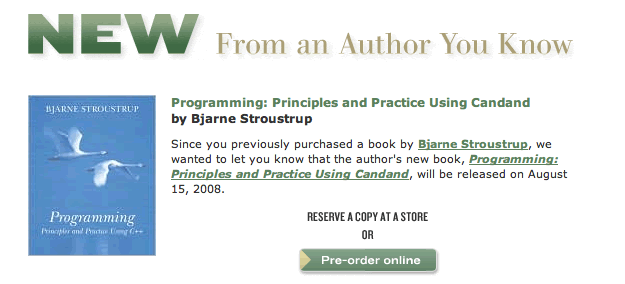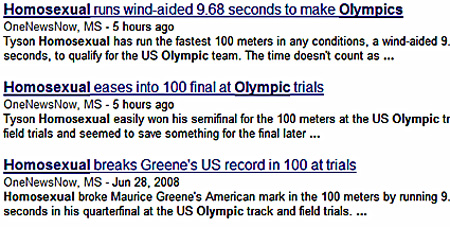États-Unis ≠ Bitche, SVP
Twice a day, walking between my hotel and Acoustics 2008 at the Palais des Congrès, I pass by the Place des États-Unis, which is four street-segments surrounding a block-long median strip, between Avenue Kléber and Avenue d'Iéna. At one end, appropriately enough, there's a statue of Lafayette shaking hands with Washington. At the other end, also appropriately, there's a memorial to the American volunteers who died while serving in the Légion Étrangère during the first world war. The base of the memorial is inscribed with verses from Alan Seeger's "Ode in Memory of the American Volunteers Fallen for France", as translated into French by Alain Rivoire. For example:
Salut frères, adieu grands morts, deux fois merci. Double à jamais est votre gloire d'être morts pour la France et d'être morts aussi pour l'honneur de notre mémoire.
In the original high-Romantic English this was:
Hail, brothers, and farewell; you are twice blest, brave hearts.
Double your glory is who perished thus,
For you have died for France and vindicated us.
In between, less obviously, there's a ten-foot-high plinth surmounted with a bust of Myron T. Herrick.
Read the rest of this entry »






